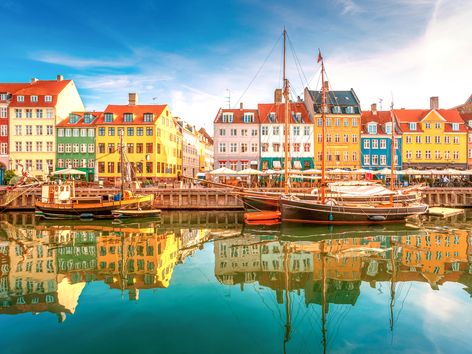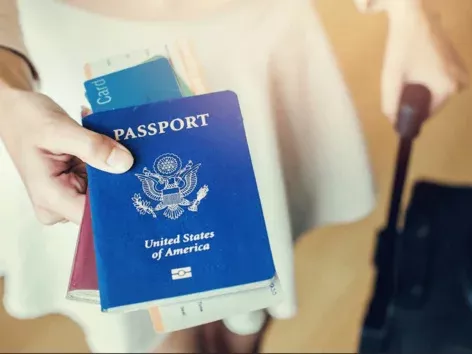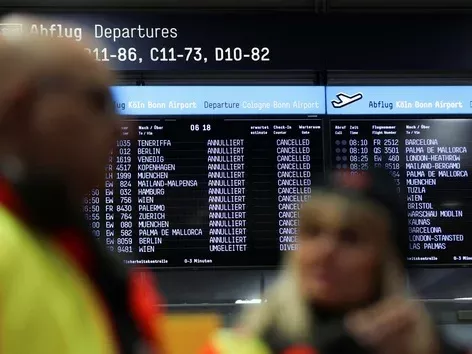Living In China: a detailed guide to moving to China for expats in 2024
Table of contents
- China's economic growth forecasts for 2024
- Cultural characteristics of life in China
- What language do the people of China speak?
- Specifics of employment for expats in China
- The number of migrants living in China
- Legal aspects of employment in China
- Features of the healthcare and insurance system in China

China continues to be a popular expat destination in 2024, offering favourable living, working and leisure conditions. Find out more about the reasons why China is so popular among the expat community
Are you thinking about moving to China? This guide will serve as a reliable reference point for you. From bustling metropolises to iconic world landmarks, China offers a unique experience for expats. You'll learn about the cost of living, language and culture.
China's economic growth forecasts for 2024
China's leader has expressed confidence in sustained economic growth in 2024 and long-term prospects for economic development through deep reforms. Amid reports of economic problems last year, he stressed that the country maintains a positive recovery trend.
"China is strengthening and consolidating the positive trends in economic recovery and achieving stable and long-term economic development," the Chinese leader said.
According to Reuters, in December, Chinese leaders set economic priorities for 2024, promising to take additional measures to support the recovery. The central bank also pledged to take policy adjustments to stimulate the economy and ensure price recovery, especially in the context of rising deflationary pressures.
Cultural characteristics of life in China
China is a huge and diverse country with a rich culture and history that is very different from Western countries. This can be both a challenge and an opportunity for expats moving to China, who may find it difficult to adopt Chinese customs and culture.
Here are some of the most important Chinese customs to keep in mind:
1. Lǐmào 礼貌 (Politeness). Politeness is a cornerstone of Chinese culture. Respecting others and using appropriate forms of address are important elements of communication. Even a small gesture of politeness can make a big difference to the locals and foster positive relationships.
2. Diūliǎn 丢脸 / (Don't lose face). Not losing face means avoiding situations that may cause public dissatisfaction or criticism. Understanding this aspect will help you avoid potential conflicts and maintain harmonious relations with local residents.
3. Lǐ shàng wǎng lái / 礼尚往来 (Gift-giving). Gifts are considered an important way to show respect and appreciation in Chinese culture. It is important to choose gifts based on the recipient's situation and interests. Refusing a gift can be seen as disrespectful, so you should accept them with gratitude.
4. Shāng wù lǐ yí / 商务礼仪 (Business etiquette). Punctuality, formal dress and attentive attitude to partners are key aspects of successful communication in Chinese business circles.
5. Jiāo jì / 交际 (Communication). It is important to be attentive and respectful when dealing with locals. Remember that the Chinese can be very hospitable, so be prepared to be offered a lot of alcohol and other favourite Chinese dishes.
What language do the people of China speak?
Chinese is a fundamental aspect of culture and communication in China. Putonghua, or Mandarin, is the official language spoken by the majority of people in the country. It is a complex language, and the meaning of words can change depending on the tone of voice.
And while Putonghua is the most widely spoken language in China and beyond, the country also has a variety of language dialects, such as Cantonese, Wu and Min. Each of these dialects is used in different regions and can be important for daily communication.
However, it is important to keep in mind that these dialects may not be understood by speakers of other dialects. Therefore, learning Mandarin can be the key to successful communication in China, especially for expats. Learning the language takes time and effort, but it opens the door to a deeper understanding of the culture and communication with the locals.
Specifics of employment for expats in China
The working culture in China is different from what expats from Western countries may be used to. Long working days, 50 to 60 hours per week, are the standard, and overtime is considered the norm, especially if it contributes to collective success. Collectivism plays an important role in Chinese society, so considering the needs of the group is a priority.
Another important feature is the hierarchical structure. You should be careful about expressing disagreement with management and always follow protocol, especially to those higher up the hierarchical chain. While this may seem unusual to some expats, understanding these cultural differences helps to avoid conflict and maintain harmony in the workplace.
Taking cultural expectations into account helps build successful working relationships and enhances reputation among colleagues and management. While adapting to the Chinese work culture may take time and effort, it will allow you to work effectively in this unique and exciting country.
The number of migrants living in China
According to the official data of the Chinese National Bureau of Statistics, at the end of 2023, more than 4.7 million foreigners lived in China, of which more than half a million were students who choose China for their education.
Even during the short-term downturn caused by the pandemic, the number of expats in China continues to grow steadily. Among the factors contributing to this are a growing economy, affordable housing and low living costs, and the country's rich cultural and historical heritage.
Most foreigners choosing China for permanent residence come from Asian neighbouring countries such as Japan, South Korea and Taiwan. However, a significant number of expatriates also come from Western countries, mainly from the United States, Canada and the United Kingdom.
This trend demonstrates the attractiveness of China as a place to live and develop, as well as the wide range of opportunities the country offers to foreigners in all areas of life.
Legal aspects of employment in China
The Chinese government has recently simplified the conditions for foreigners to live and work in China, but obtaining a visa can be a challenge. Before travelling to China (except Macau and Hong Kong), you will need to make sure you have a visa. This process can take time, so you will have to apply at the nearest Chinese embassy.
Citizens of countries with bilateral agreements can enter without a visa, but if you plan to stay longer, you may still need a visa. Check visa requirements carefully before you leave.
The labour market has become more competitive due to the increased skills and experience of local graduates. Therefore, many positions that used to be chosen by expats are now being filled by local workers.
Expats moving to China are most often hired for managerial positions or those requiring specialised skills, especially in the technology sector.
Expat salaries vary considerably by industry. Those with work experience in China and Mandarin language skills are more likely to be offered higher salaries. Also, the salaries of expats hired from abroad are higher than local salaries, and they are more likely to be offered generous benefits packages. For a successful move to China, it is important to get a job offer in advance.
Below is the average salary range for expats working in China, depending on the profession in 2024:
1. Healthcare: $41,955 - $192,363;
2. Engineering and technical workers: $35,492 - $122,897;
3. Programmers: $16,000 - $45,000;
4. Sales/Marketing Managers: $32,000 - $44,000;
5. English language teachers: $20,000 - $28,000.
Features of the healthcare and insurance system in China
The healthcare system in China is a combination of different approaches. Although it has made significant progress in recent years, there are still areas where there are problems, and some treatments remain inaccessible due to long waiting times and a lack of specialists.
China has a two-tiered healthcare system: a public system funded by the government and employers, and a private system. The public system provides basic services such as doctor visits and prescription drugs, but can be overcrowded and not always provide the same quality. The private system offers a wider range of services and higher quality, but can be costly.
Expats in China can access the public system after paying local taxes, but many prefer private clinics with international health insurance because of greater accessibility and ease of communication with English-speaking doctors.
Igor Usyk - Head of Migration department at VisitWorld
To ensure a safe move to a new country, I advise you to consult a specialist. My colleagues, qualified specialists with a legal education, will help you avoid unpleasant situations during migration.
Products from Visit World for a comfortable trip:
Travel guide for 200 countries;
Legal advice from a local specialist on visa and migration issues;
Travel insurance around the world (please select the country of interest and citizenship to receive services);
Medical insurance all over the world.
Recommended articles
2 min
Travels
The safest and most dangerous cities in Europe: a new EU ranking
A new ranking of the safest and most dangerous cities in Europe provides an opportunity to better understand the crime and security situation in different cities of the European Union. The assessment is based on various factors such as crime, corruption, quality of life, law enforcement and security systems. Read more about the safest and most dangerous cities in Europe
02 Feb. 2024
More details2 min
Travels
The most expensive cities in the world 2024: a new ranking from Numbeo
Have you ever wondered which are the most expensive cities in the world? Numbeo, one of the leading sources of information on the cost of living and prices around the world, regularly ranks the most expensive cities based on various aspects of costs. Read more about the results of the latest Numbeo study
04 Feb. 2024
More details1 min
Travels
American passport holders will need a visa to travel to Europe: what changes await travelers?
Starting next year, U.S. passport holders traveling to Europe will be required to apply for authorization through the European Travel Information and Authorization System (ETIAS) before traveling. Learn more about the program, which countries Americans will need to have an ETIAS authorization to travel to, and how to apply
07 Feb. 2024
More details1 min
Transport
Strikes in Europe: in which EU countries can we expect transport disruptions in February 2024?
Strikes are a regular occurrence in Europe, when workers stop working to fight for better pay and working conditions. They cause instability in public transportation and other industries. In particular, a large number of strikes are planned for February in different EU countries, which can significantly complicate the lives of residents and tourists. Find out more about where and when strikes will take place in February
08 Feb. 2024
More detailsAll materials and articles are owned by VisitWorld.Today and are protected by international intellectual property regulations. When using materials, approval from VisitWorld.Today is required.
